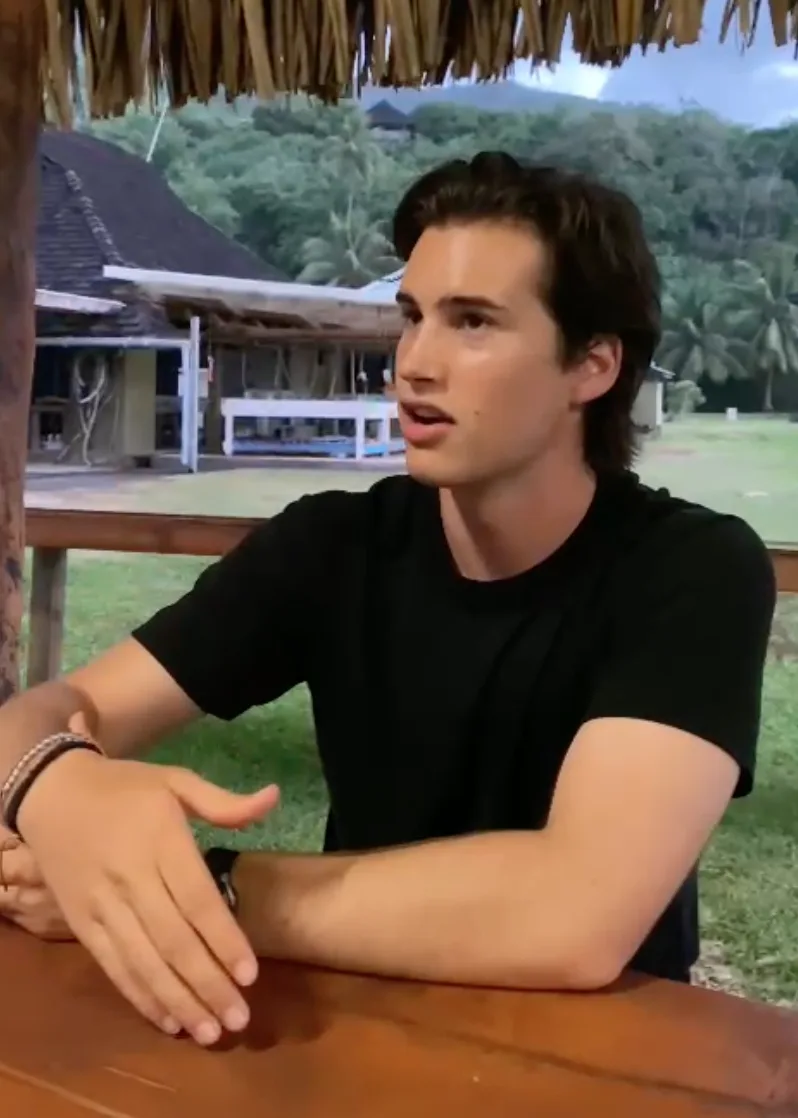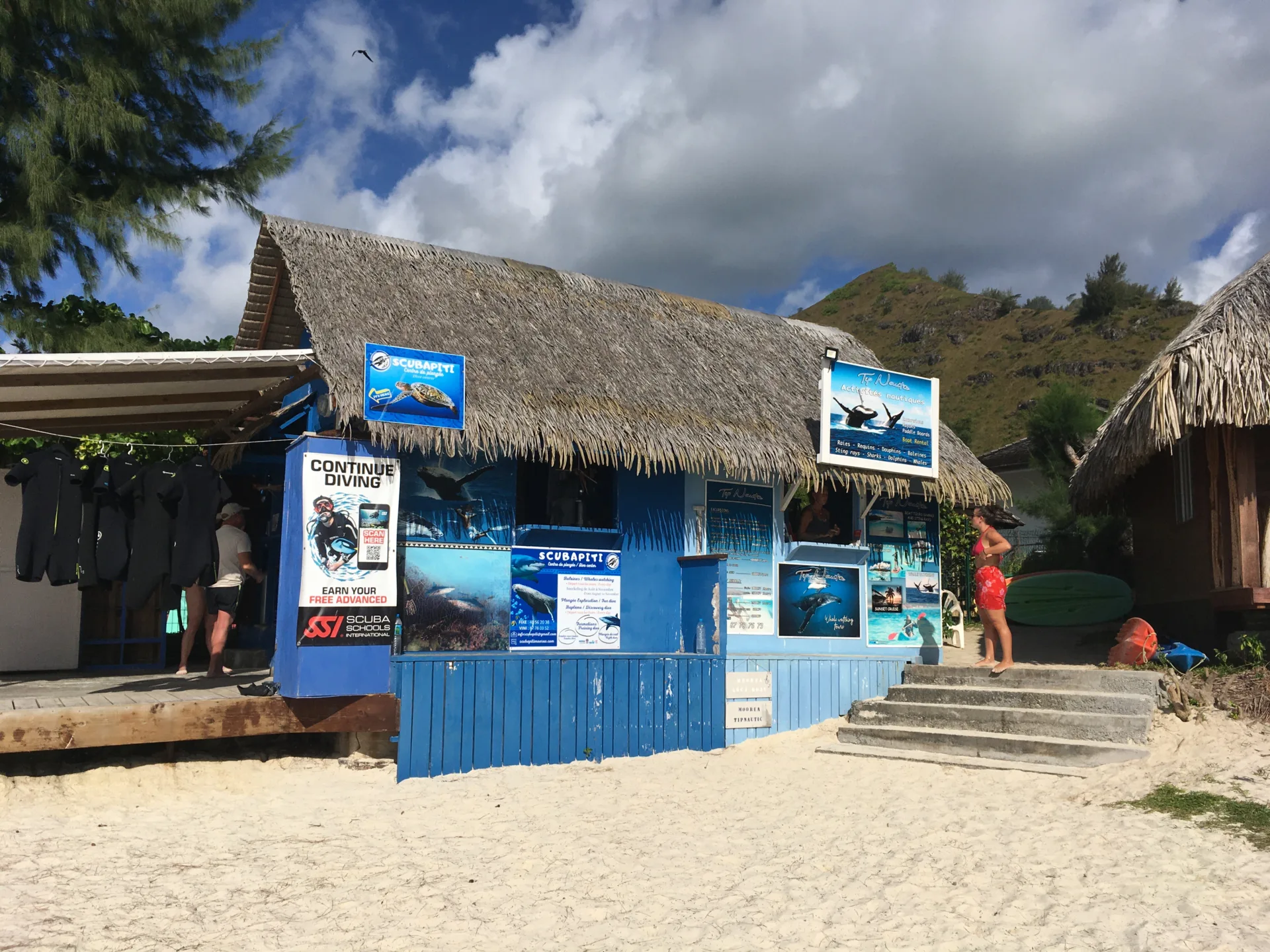Programs Blog
Zach on the Grey Space in Science and Management

Date: May 30, 2025
Time: 2110
Location: Gump Marine Station, Mo‘orea
Weather: 76˚ F, 8 kts southeasterly
Below is an excerpt of an interview with Zach Flagler, University of Washington
What did you today?
We’re just finishing up the rest of our symposium project and all of us are a little frantically working on our presentations. We’ve been going through step by step, slide by slide, each of us, getting absolutely demolished working on our presentation and what we’re going to say, let alone making sure that everything is tip-top shape.
What is your science project?
I’m working with the myctophids group. We’re specifically looking at biodiversity and omz’s (oxygen minimum zones) and declining oxygen values in the water. It’s been a really unique topic to be looking at. During the day myctophids go down to the depths and then in the night go up to feed. So they’re passing through this big bubble of low oxygenated water. So we were looking at their relationship with that. There’s a lot of good data that they’re able to cope with that, but not a lot in the SPG (South Pacific Gyre, where we sailed). We all picked this project for the most part because we love fish, but then to realize there’s all this genetic structure that is unique and actually relatively unknown. It’s been really neat, cool to be the tip of the spear, the forefront on a lot of that work. We might not publish our work anytime soon, but still to be part of it has been really unique. Noteworthy.
We sailed 4,000 nautical miles across the South Pacific. I went into the humanities side for my major, which has been wonderful and I really enjoy it. But you miss a lot of this really engaging in the field, “dirty work,” I guess. And our work was dirty work! Anybody who brought clothes on our boat, can tell you that. And to get that experience, let alone in the way that we did, has been—they talked about this at the beginning of the trip, that this trip is going to be the hardest trip that you’ll ever love. And that was spot on.
Over the course of the semester, has your thinking about marine science and management changed?
Yeah, absolutely. Someone probably already talked about this, but we met the other day with a local guide, Herehia (Sanford). We were able to go around the entire island and explore a lot of these really unique cultural aspects that we would not know of. Within that we also got a lot of insight into a lot of things that were going on inside Mo ‘orea specifically. French colonialism and how it’s been impacting culture. It’s easy to come into a culture and see things as really easily black and white. It’s easier to digest that way. And running into that it’s not black and white. There’s very much a grey space. And being able to talk to Herehia about that and experience that. There’s a lot of nuance there. And it’s the same with marine science and management. We have a student, “Sketch” (Ella), who did her OSPP project on whale tourism and being in the water with whales. It’s easy to see that it’s: Oh, this is stressful for the whales. It should be stopped! But then you realize there’s a lot of nuance there, the grey area. There’s a lot of work (on reducing stress for the animals) being done. And a lot of people that rely on that here as their paycheck. It’s easy to categorize something in one box or another box, when there is always something you may not have expected. We found that in our oceanography data. Everybody else’s data. The hypotheses they may have thought in the beginning could be 100% correct. Or completely wrong and skewed in some way or maybe some other factor altered their data. And we’re all the better for it!


an issue we learned has more to it than we expected. (Rich King)
Recent Posts from the Ships
- Ocean Classroom 2024-A collaborative high school program with Proctor Academy
- Collaborations and Long-term Commitments: SEA’s Caribbean Reef Program Sets a Course for Coastal Programs that Compliment Shipboard Experiences.
- Sea Education Association students prepare for life underway using state of the art nautical simulation from Wartsila Corporation.
- SEA Writer 2022, Magazines From the Summer SEA Quest Students
- Technology@SEA: Upgrades Allow Insight into Ocean Depths
Programs
- Gap Year
- Ocean Exploration
- High School
- Science at SEA
- SEA Expedition
- SEAScape
- Pre-College
- Proctor Ocean Classroom
- Protecting the Phoenix Islands
- SPICE
- Stanford@SEA
- Undergraduate
- Climate and Society
- Climate Change and Coastal Resilience
- Coral Reef Conservation
- Marine Biodiversity and Conservation
- MBL
- Ocean Exploration: Plastics
- Ocean Policy: Marine Protected Areas
- Oceans and Climate
- Pacific Reef Expedition
- The Global Ocean: Hawai'i
- The Global Ocean: New Zealand